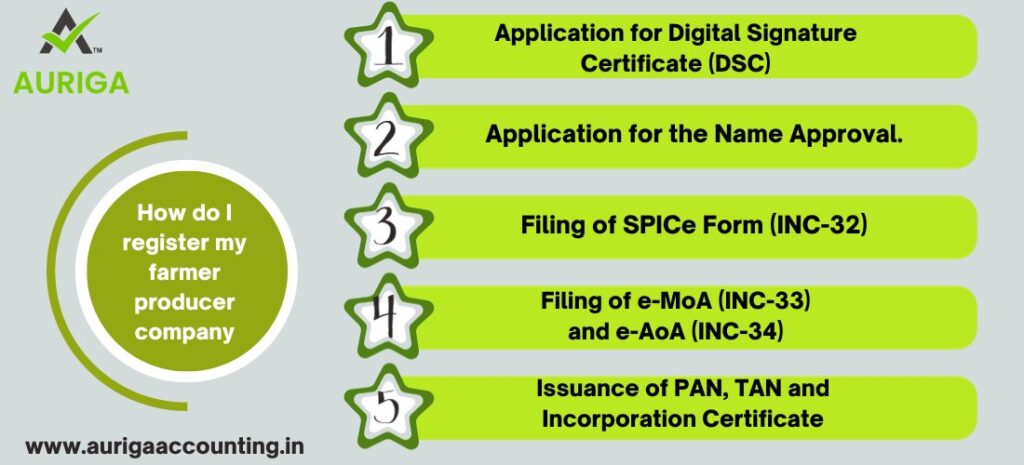
IS THERE A REQUIREMENT FOR AUDIT IN PRODUCER COMPANY?
Introduction
ToggleYOU NEED TO KOW IS THERE A REQUIREMENT FOR AUDIT IN PRODUCER COMPANY?
Yes, Producer Companies in India in India are subject to audit requirements as per the Companies Act, 2013. The Act mandates that every producer company, regardless of its turnover or size, must appoint an auditor to conduct an audit of its financial statements annually. The audit ensures compliance with statutory regulations and provides stakeholders with accurate financial information. The auditor’s report is a crucial document for transparency and accountability, contributing to the overall integrity of the producer company’s financial reporting. Compliance with audit requirements helps maintain credibility and trust among members, investors, and other stakeholders. Visitofficialwebsite
Statutory Audit Requirements
A. General Statutory Audit:
Under the Companies Act, 2013, which governs Producer Companies, all companies are required to conduct an annual audit of their financial statements. This audit is performed by a qualified Chartered Accountant (CA) or a firm of CAs. Producer Companies are no exception to this rule.
B. Applicability of Statutory Audit:
One of the key aspects of the audit requirement for Producer Companies is that it applies to all such entities, regardless of their turnover or the size of their operations. This aligns with the general statutory audit requirement for companies in India. Whether a Producer Company is small or large, it must have its financial statements audited annually.
Audit Process and Compliance Obligations
A. Selection of Auditor:
Producer Companies must appoint an auditor who holds a certificate of practice. This auditor is responsible for conducting the statutory audit of the company’s financial statements. The appointment of the auditor is typically made during the annual general meeting (AGM) of the company.
B. Scope of the Audit:
The audit process encompasses a comprehensive review of the company’s financial records, transactions, and internal controls. The scope of the audit includes:
Verification of Financial Statements: The auditor verifies the accuracy and completeness of the financial statements, including the balance sheet, profit and loss statement, and cash flow statement.
Compliance with Accounting Standards: The auditor ensures that the financial statements comply with the relevant accounting standards, which could be Indian Accounting Standards (Ind AS) or Accounting Standards (AS), depending on the company’s status.
Assessment of Internal Controls: The auditor assesses the adequacy and effectiveness of the company’s internal controls and financial reporting processes.
Detection of Irregularities: The audit aims to identify any material misstatements or irregularities in financial reporting, which can have significant legal and financial implications.
C. Audit Report:
Upon completing the audit, the auditor issues an audit report. The audit report is a formal document that includes the auditor’s opinion on various aspects of the company’s financial statements. The key components of the audit report include:
Opinion on Financial Statements: The auditor provides an opinion on whether the financial statements present a true and fair view of the company’s financial position and performance.
Opinion on Compliance: The report highlights the company’s compliance with the relevant accounting standards and legal requirements.
Disclosure of Qualifications or Discrepancies: If there are any qualifications, inconsistencies, or discrepancies in the financial statements, these are detailed in the audit report.
D. Submission of Audit Reports:
Producer Companies are required to submit their audited financial statements along with the audit report to the Registrar of Companies (RoC) within the prescribed time frame. This submission is a legal requirement and is essential to demonstrate compliance with regulatory obligations. Failure to do so can result in penalties and non-compliance issues.
Significance of Audits in Producer Companies
Audits play a significant role in the governance and operations of Producer Companies. Here’s why audits are crucial for these entities:
Transparency and Accountability: Audits provide an independent and expert assessment of the company’s financial statements. This assessment enhances transparency and accountability in the company’s operations.
Legal Compliance: Producer Companies must adhere to various legal provisions, including the Companies Act, 2013, and the Income Tax Act, 1961. Audits help ensure that the company is in compliance with these laws.
Detection of Irregularities: Audits are a critical tool for detecting irregularities, financial misstatements, or fraud within the organization. This helps protect the interests of the members and stakeholders.
Investor Confidence: A clean audit report enhances the confidence of investors, lenders, and other stakeholders in the financial integrity of the company. This, in turn, can facilitate access to capital and resources for the company’s growth.
Improvement of Internal Controls: Audits also serve as a feedback mechanism for the company. Audit findings and recommendations can be used to improve internal controls and financial processes.
What are the requirements for a producer company
The minimum requirement for producer company registration is 5 directors and 10 members. The minimum paid-up capital should be Rs. 5 lakhs to complete the incorporation of a producer company. There can be unlimited number of members in the company as there is no specific prescribed limit of members.
What do you mean by producer company
In the Companies Act 2013, a Producer Company is defined as a company that is formed and registered under the Companies Act, with the objective of production, harvesting, procurement, grading, pooling, handling, marketing, selling, and export of primary produce of its members or import of goods or services for their
Is farmer producer company a private limited company
An FPC is a hybrid between cooperative societies and private limited companies. The Farmer Producer Companies, registered under the Indian Companies Act, 2013, have democratic governance, each producer or member has equal voting rights irrespective of the number of shares held.
What is the type of producer company
A producer company is a company registered with a minimum of 10 people and a maximum of 200 people under the Companies Act, 2013, with the objective of production, harvesting, processing, procurement, grading, pooling, handling, marketing, selling, and export of primary produce of its members, or import of goods
What is the minimum capital for a producer company
What is the difference between FPO and producer company
Producer Organizations are legal entities that can be formed by primary producers such as farmers, fishermen, milk producers, artisans, etc. The producer organization in which all the members are farmers is known as Farmer Producer Organization or FPO.
What are the rules for farmer producer company
A minimum paid-up capital is required to incorporate a producer company. There should be a minimum of 5 directors (maximum of 15) in a producer company. It can never be converted into a public company however it can be converted into a multi-state co-operative society

How do I register my farmer producer company
- Application for Digital Signature Certificate (DSC) …
- Application for the Name Approval. …
- Filing of SPICe Form (INC-32) …
- Filing of e-MoA (INC-33) and e-AoA (INC-34) …
- Issuance of PAN, TAN and Incorporation Certificate.
Is producer company a small company
Name of the company shall end with the words ‘Producer Company Limited’. For the purpose of the application of law and administration, the producer company on registration will be deemed. As if it is a private company in keeping with part IX-A. There is no limit as to the maximum number of members.
Who can form a producer company
FORMATION OF PRODUCER COMPANY AND ITS REGISTRATION (1) Any ten or more individuals, each of them being a producer or any two or more Producer institutions, or a combination of ten or more individuals and Producer institutions, desirous of forming a Producer Company having its objects specified in section 581B and ..
What are the three roles of a producer
A producer is the person responsible for finding and launching a project; arranging financing financing; hiring writers, a director, and key members of the creative team; and overseeing all elements of pre-production, production and post-production, right up to release.
What are the rules for farmer producer company
A minimum paid-up capital is required to incorporate a producer company. There should be a minimum of 5 directors (maximum of 15) in a producer company. It can never be converted into a public company however it can be converted into a multi-state co-operative society.
Can a CA do his own audit
No he can’t. It will be against both the principle of his audit and violation of rules of Icai(Professional misconduct as per icai act). Also as per companies act the company will be at default if done so. He cannot even audit in companies where he is related or any important position
Conclusion of audit in producer company
In conclusion, there is a clear and mandatory requirement for audit in Producer Companies in India. The audit process, as governed by the Companies Act, 2013, ensures that these entities maintain financial transparency, comply with relevant accounting standards and legal provisions, and safeguard the interests of their members and stakeholders.
The audit is a multifaceted process that encompasses the selection of auditors, the comprehensive review of financial statements and internal controls, the issuance of audit reports, and the submission of these reports to the Registrar of Companies. Additionally, the tax audit requirements under the Income Tax Act, 1961, further add to the audit obligations of Producer Companies.
The Audit Committee, as mandated by the Companies Act, plays a pivotal role in overseeing the audit process, while internal audits offer a proactive approach to improving internal controls and risk management.
The significance of audits in Producer Companies extends beyond compliance; it contributes to the overall governance, integrity, and growth of these entities. It fosters investor confidence and ensures that the economic interests of the primary producers are protected and enhanced through collective action.
As regulatory frameworks may evolve over time, it is imperative for Producer Companies to stay informed and adapt to changes in audit requirements to maintain their legal and financial standing. Compliance with audit requirements not only fulfills legal obligations but also serves as a testament to the ethical and transparent functioning of these unique corporate entities.
How auriga accounting help you to define audit in producer company
Auriga Accounting, or any accounting software, plays a pivotal role in the financial operations of a Producer Company. While accounting software itself doesn’t define the audit process, it significantly facilitates and streamlines the audit procedures. Here’s how Auriga Accounting can assist in the audit process for a Producer Company:
Data Accuracy and Integrity:
- Auriga Accounting, like Auriga Accounting helps maintain accurate and complete financial records. This is a crucial prerequisite for a successful audit. Auditors rely on financial data to assess a company’s financial health, and errors or discrepancies can lead to inaccurate audit results. Auriga Accounting ensures that transactions are recorded correctly and consistently, reducing the likelihood of errors.
Data Accessibility:
- Auditors need access to financial data, and accounting software makes this process more efficient. Instead of sifting through physical ledgers and spreadsheets, auditors can access the company’s financial records digitally. This saves time and ensures that the auditor can focus on the audit process itself rather than data collection.
Transaction Tracking:
- Auriga Accounting, allows for easy tracking of financial transactions, including income, expenses, assets, and liabilities. This facilitates the auditor’s ability to trace transactions and verify their accuracy. It’s crucial for the audit process to confirm that all transactions are properly recorded and classified.
Financial Reporting:
- Auditors require access to financial statements and reports. Auriga Accounting can generate these reports with ease, providing auditors with the necessary documentation for their review. These reports include the balance sheet, income statement, cash flow statement, and other relevant financial statements.
Audit Trail:
- Many accounting software applications, including Auriga Accounting,, provide an audit trail feature. This feature logs all changes made to financial data, including who made the changes and when they were made. The audit trail serves as an invaluable tool for auditors to trace and verify the accuracy of financial data and to identify any unauthorized or inappropriate changes.
Data Security:
- Accounting software typically includes security measures to protect financial data. This is important for maintaining the integrity of financial records and ensuring that data is not tampered with or accessed by unauthorized individuals. From an audit perspective, data security measures help to ensure that the data provided to auditors is reliable and hasn’t been compromised.
Efficiency and Timeliness:
- The use of accounting software streamlines the financial management process, which, in turn, facilitates the audit process. Auditors can work more efficiently when financial records are well-organized and readily accessible. This can help reduce the time and effort required for the audit, which may result in cost savings for the Producer Company.
Compliance with Accounting Standards:
- Accounting software often incorporates built-in compliance features to ensure that financial data is recorded in accordance with accounting standards. This is critical for ensuring that the financial statements prepared for the audit comply with the relevant accounting principles.
Data Export:
- Accounting software typically allows for easy data export. This is especially useful for providing auditors with the information they need in a format that aligns with their auditing software or tools. It simplifies the process of sharing financial data with auditors.
Documentation and Record-Keeping:
- Proper documentation is an essential aspect of audit readiness. Accounting software enables you to maintain digital records of financial transactions, invoices, receipts, and other relevant documents. Auditors can review these digital records to validate the financial information.






